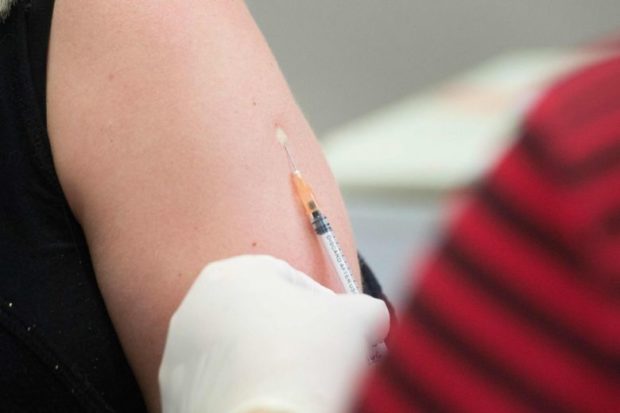
Monoclonal antibodies can be produced in large batches and a single injection may last for a few weeks. AFP via The Straits Times/Asia News Network
SINGAPORE — Singapore will embark on human clinical trials next week on 23 healthy individuals for a potential treatment of Covid-19.
The Phase 1 trials, developed by Singapore-based biotechnology company Tychan, will be conducted by the SingHealth Investigational Medicine Unit and will take about six weeks.
This is meant to determine the safety and effectiveness of TY027, a monoclonal antibody or immune system protein that specifically targets Sars-CoV-2, the virus that causes Covid-19, said Tychan in a statement on Wednesday (June 10).
TY027 is being explored for the treatment of Covid-19 patients by slowing the progression of the disease and speeding up recovery, as well as potentially to provide temporary protection against infection, it said.
If phase 1 is successful, Tychan will seek approval for the antibody to be administered to a larger population of volunteer patients in subsequent trials.
The treatment is aimed at Covid-19 patients for now.
Whether it could be used for other applications, such as for healthcare workers or even overseas travellers, would depend on the results of the trial.
Professor Ooi Eng Eong of Duke-National University of Singapore Medical School and one of the founders of Tychan, said that besides using the drug as a treatment for Covid-19, it could potentially be used to prevent infections.
“If the drug is indeed safe enough, we could for instance give these to healthcare workers who are treating Covid-19 patients so they don’t get the infections themselves.
“And, as well as other scenarios like for instance, if one travels to places with a lot of Covid-19 cases, this could be used to prevent infections when they are away from Singapore,” he said.
TY027 was developed together with the Ministry of Defense, Ministry of Health, the Economic Development Board, and other government agencies.
Monoclonal antibodies are immune system proteins that are created in the laboratory, and can be specially designed and engineered to target Sars-CoV-2.
The advantage is that these can be developed over several months, they can be produced in large batches and a single injection may last for a few weeks.
Tychan said it has received approval from the Health Sciences Authority to start dosing healthy volunteers next week.
Presently, there is no proven treatment or vaccine for Covid-19. One approach involves harvesting antibodies from Covid-19 patients to treat others with the disease, which has been shown to work in other serious virus infections.
However, the quantity of antibodies that can be recovered is limited, and it will be challenging to produce enough quantities to treat more than a few individuals.
To overcome this limitation, a number of biotech companies have established platforms to scale up the production of antibodies against Covid-19.
In tandem, a number of Singapore groups, including Tychan, have also joined the international race to develop monoclonal antibodies against Covid-19.
Tychan, which counts Temasek Holdings as its founding investor, is a Singapore based clinical-stage biotechnology company focused on developing treatments for emerging infections through disruptive technologies.
It was founded by Professor Ram Sasisekharan of Massachusetts Institute of Technology (MIT)/Singapore MIT Alliance for Research and Technology (Smart) and Professor Ooi, who have expertise in biologics development and biology of acute viral infections.
In a coordinated effort with regulatory authorities, the company is accelerating the translation from non-clinical studies to clinical trials for emerging pathogens, and had previously worked on treatments for Zika and Yellow Fever.
Said Mr Teo Ming Kian, board chairman for Tychan: “Rapidly developing a cure for Covid-19 is exactly the raison d’etre of Tychan.
“Whilst still a few months away from knowing if we are successful, we are hopeful because of our experience in Zika and Yellow Fever.”
There has been a proliferation of more than 300 clinical trials worldwide for the coronavirus.